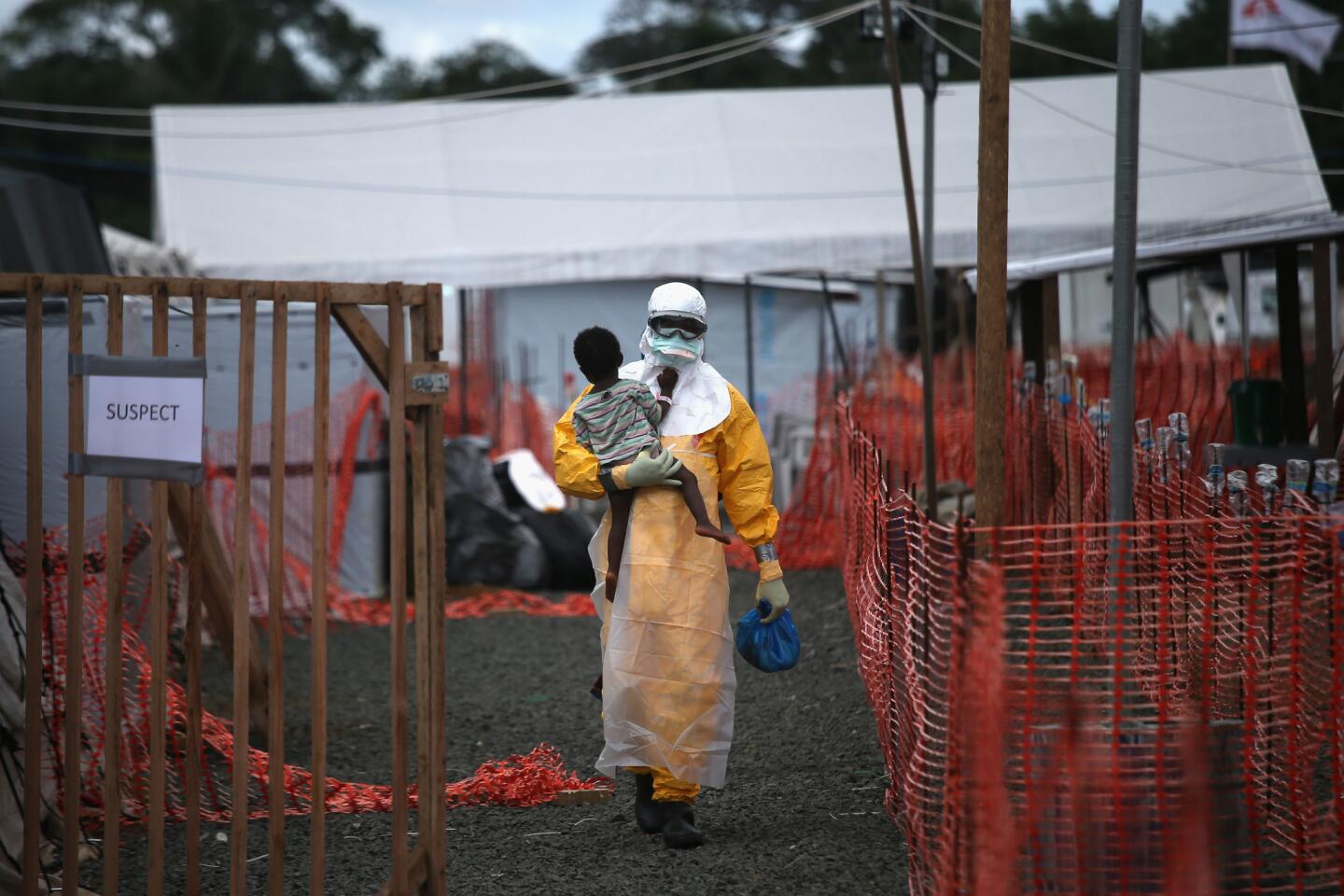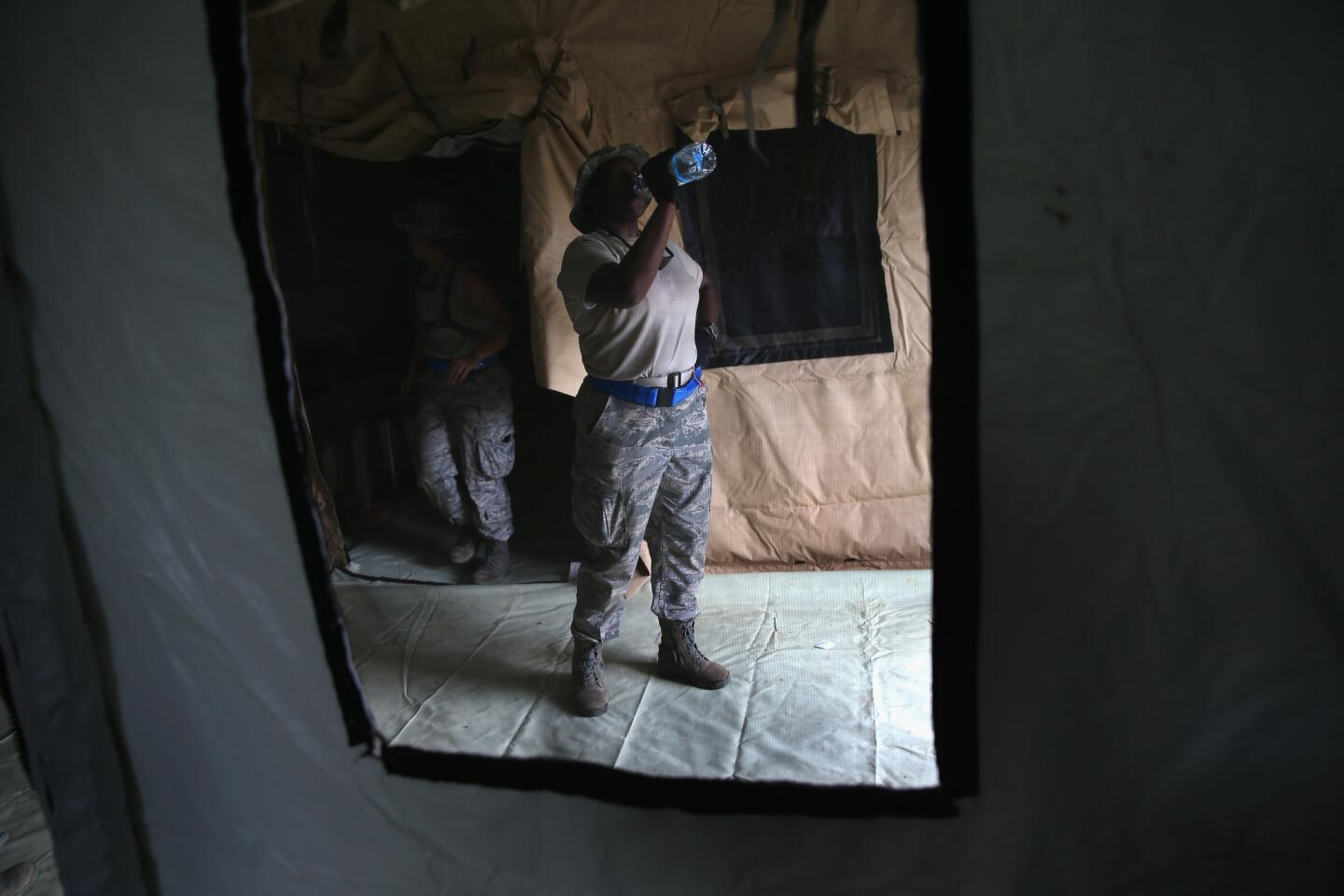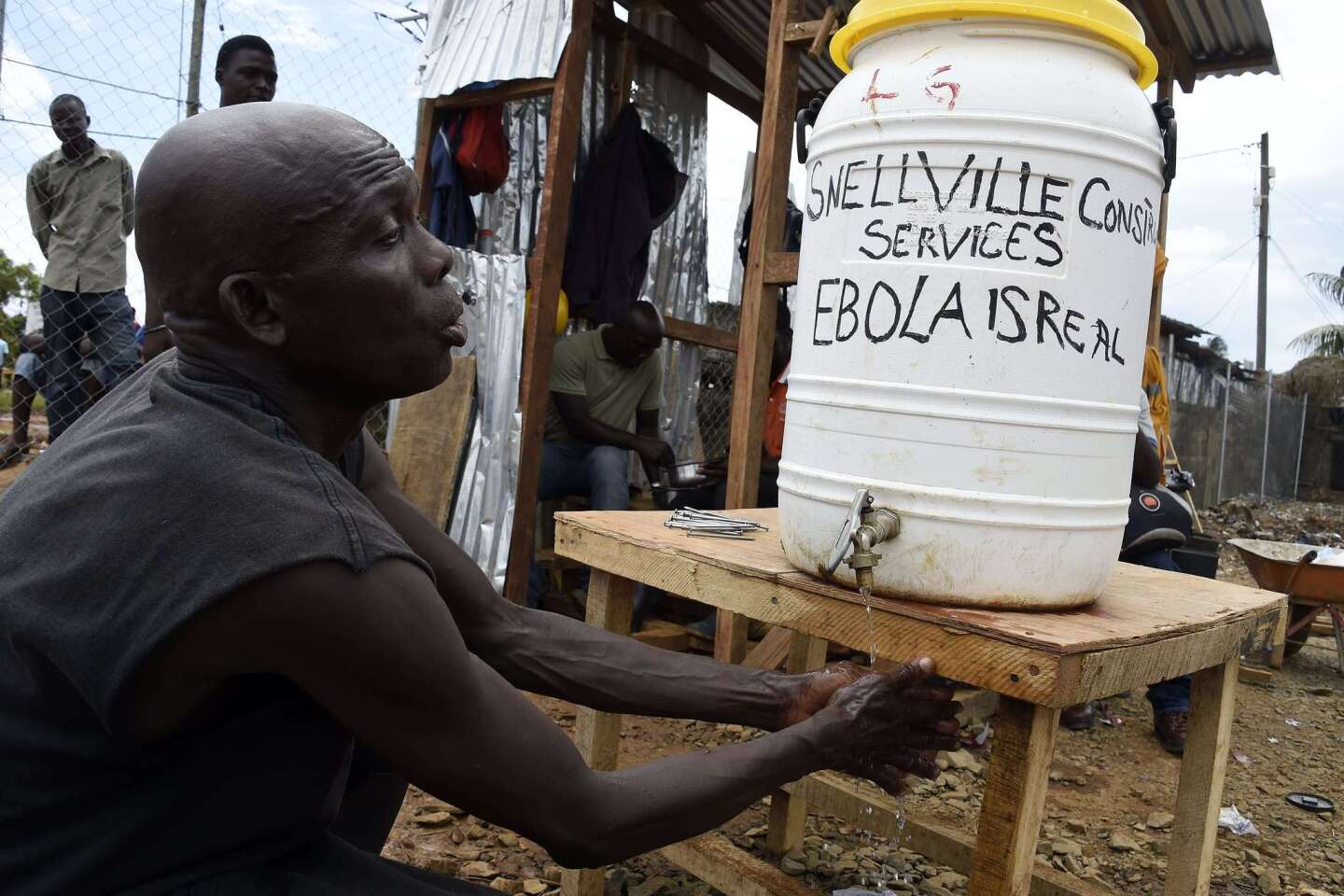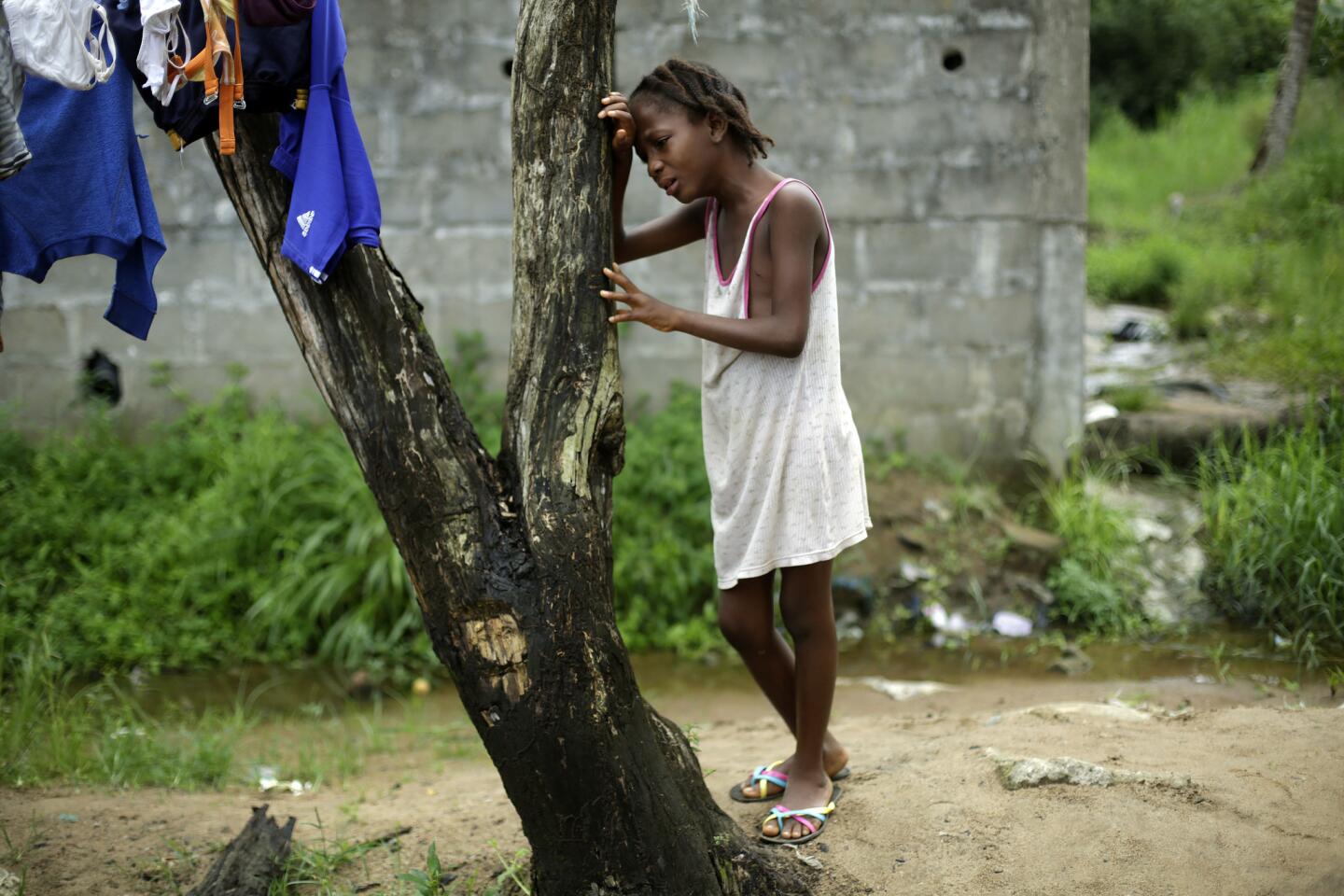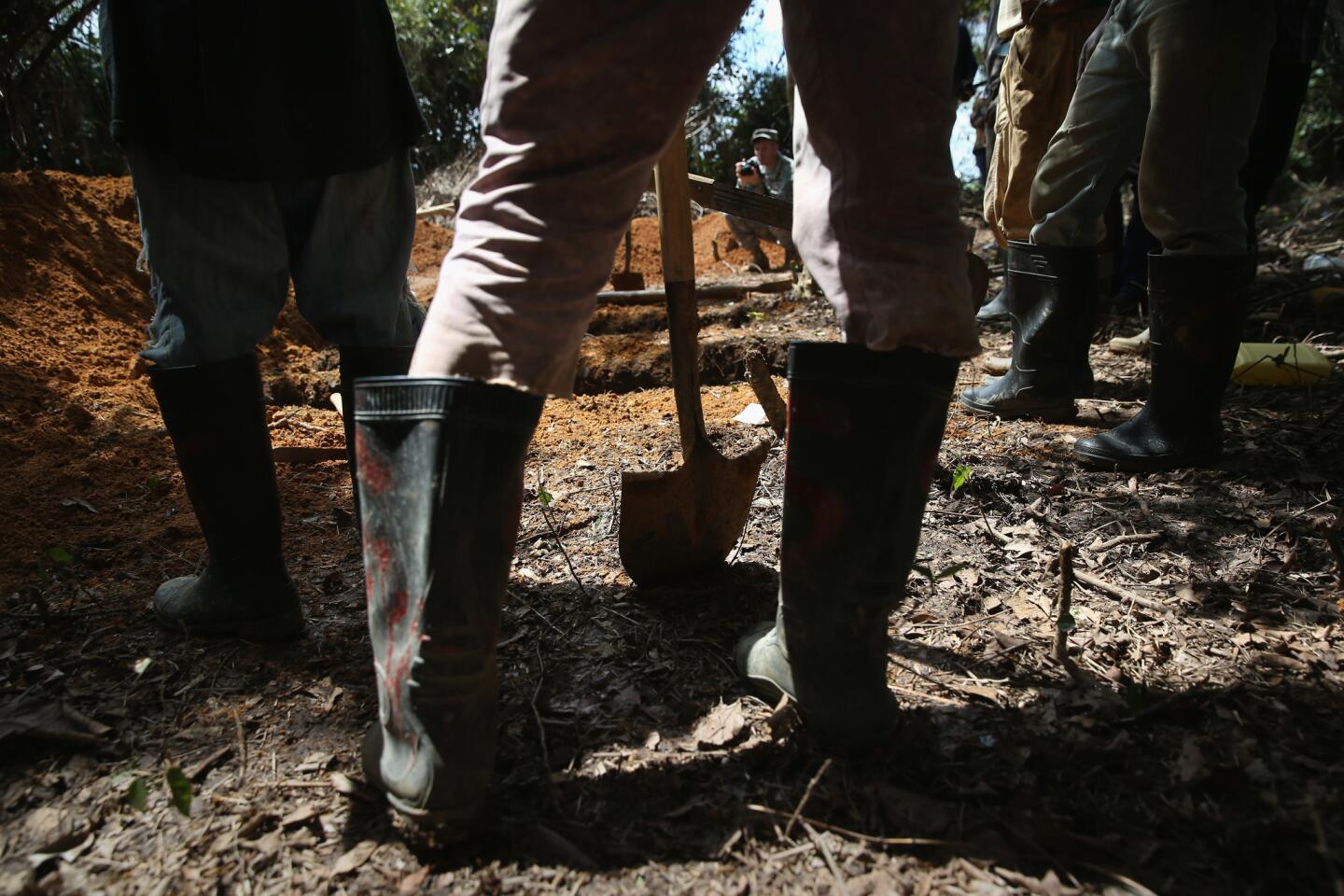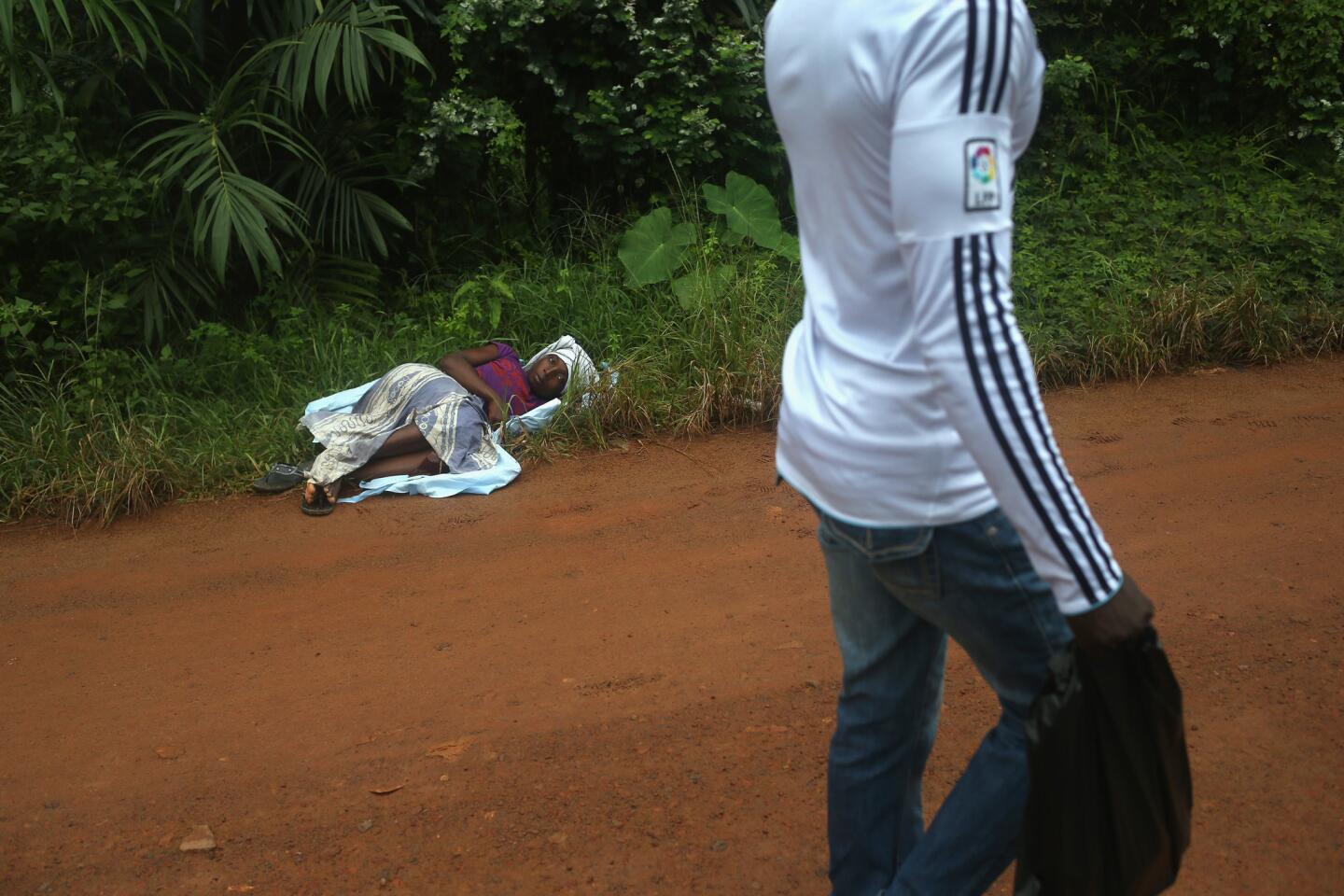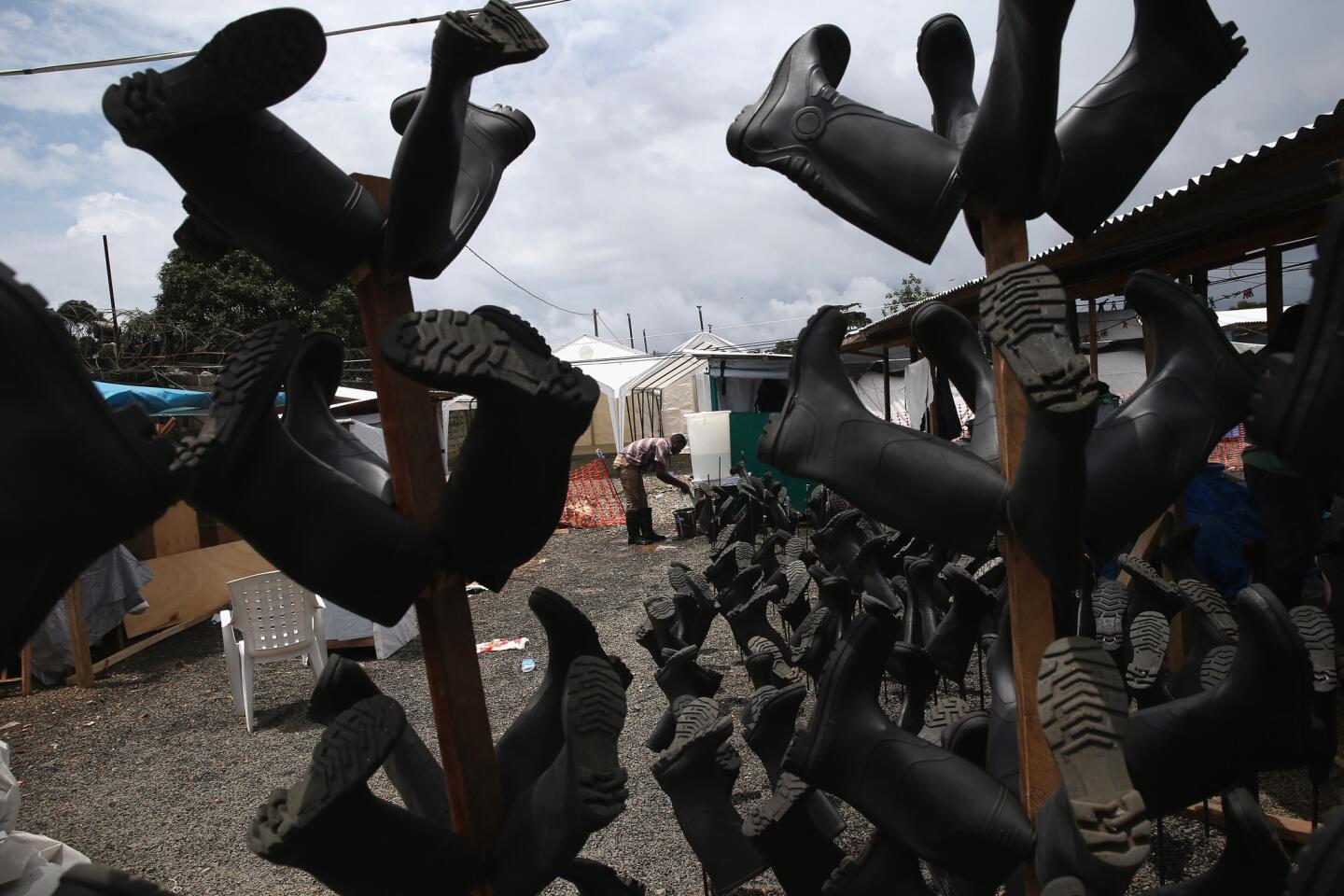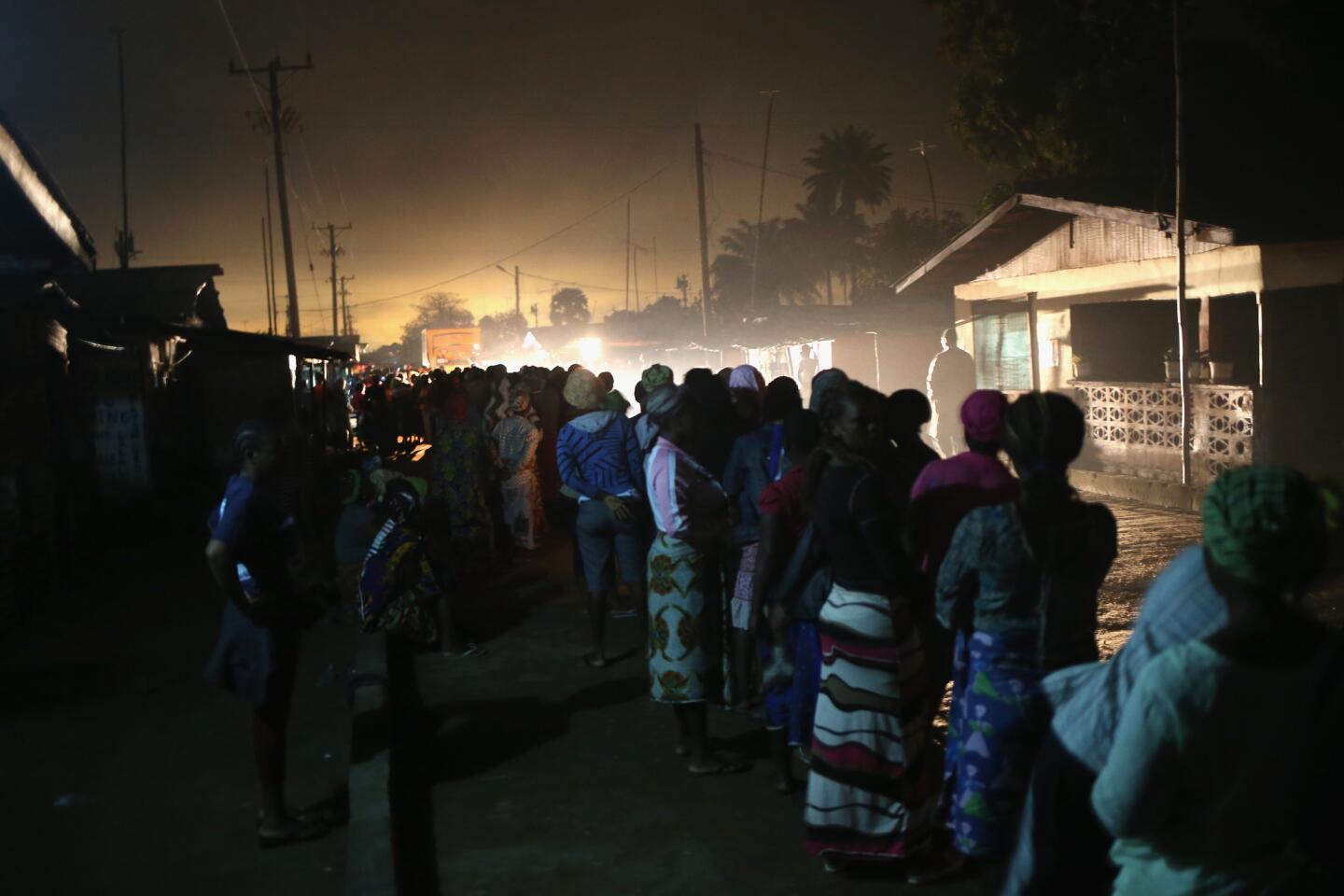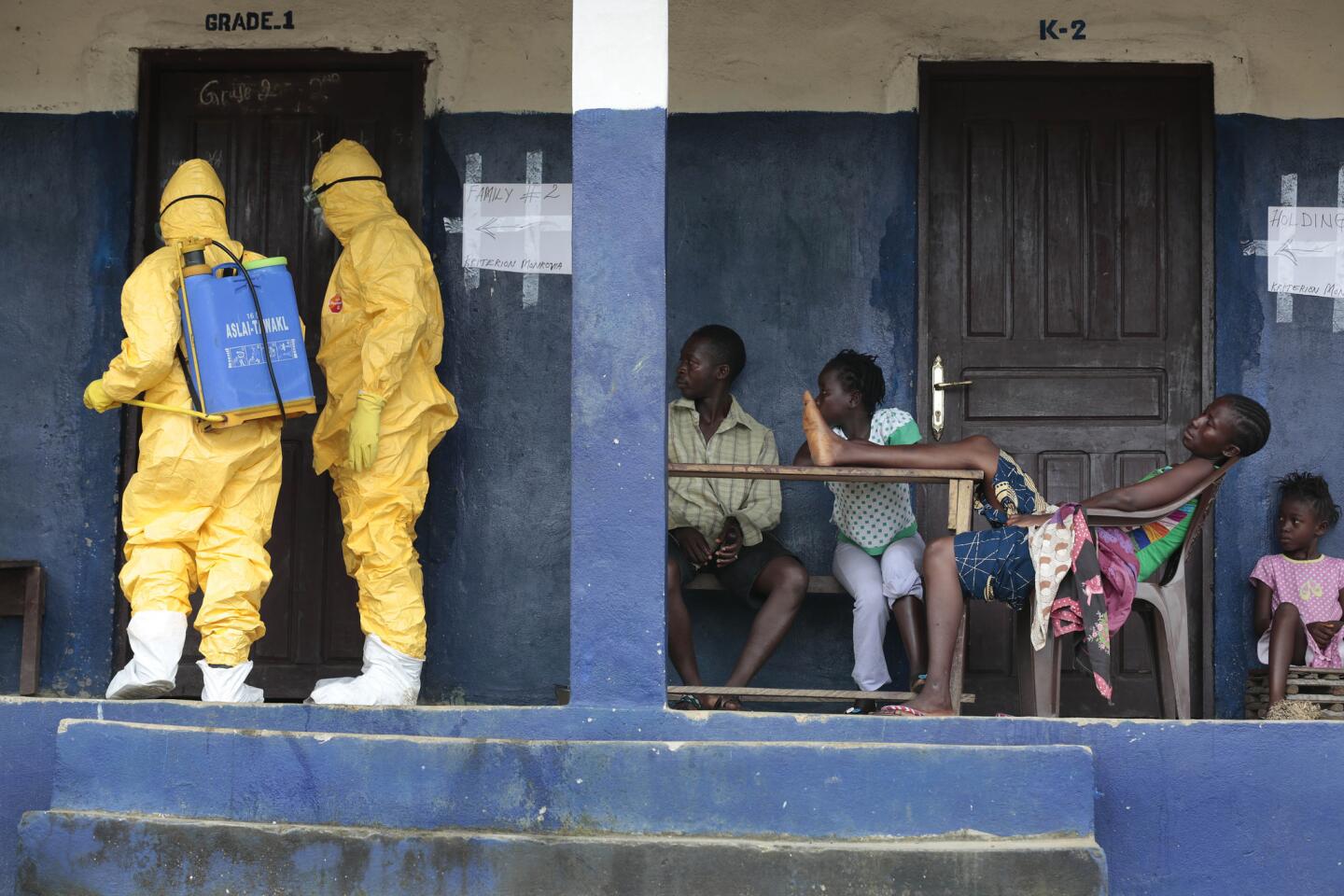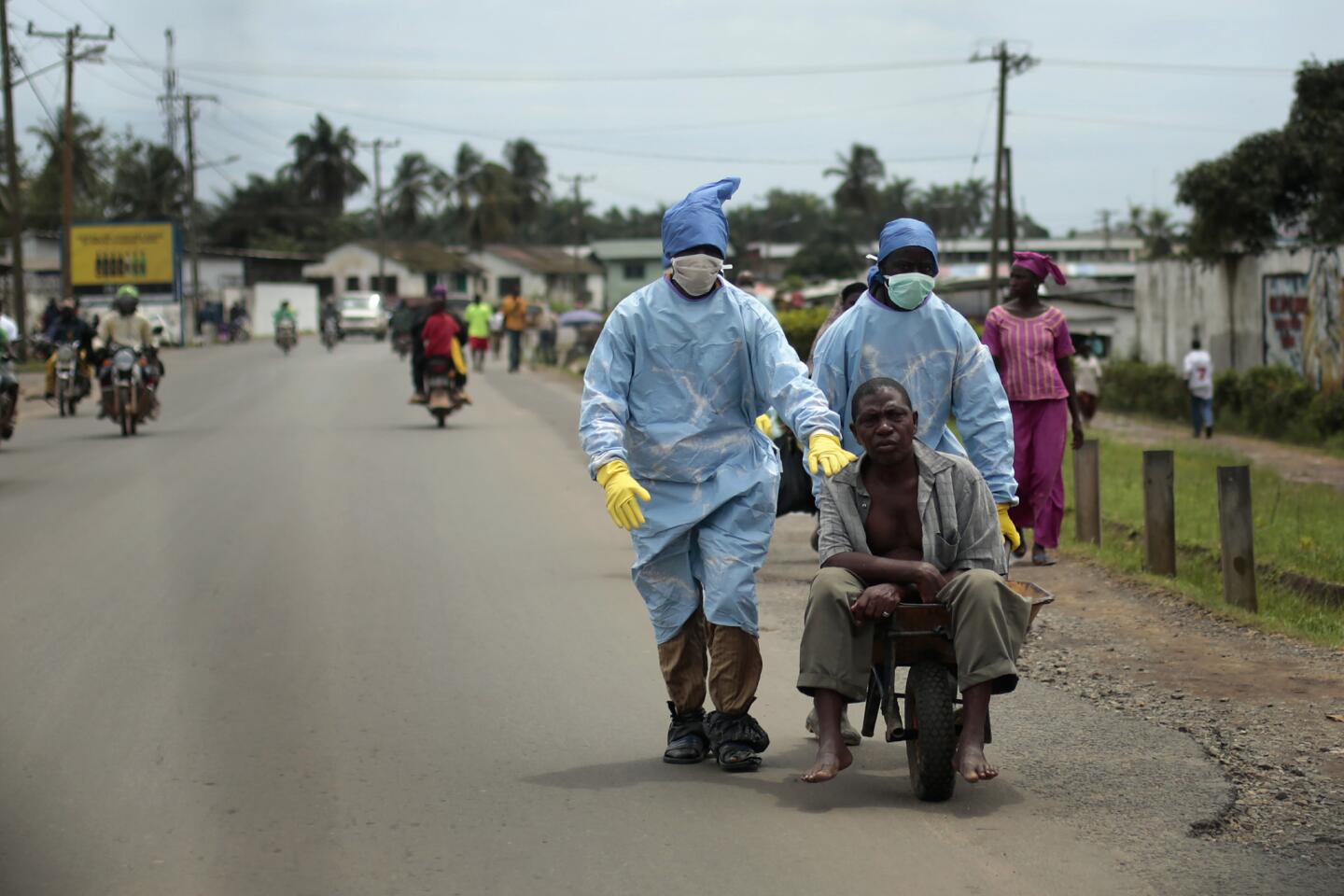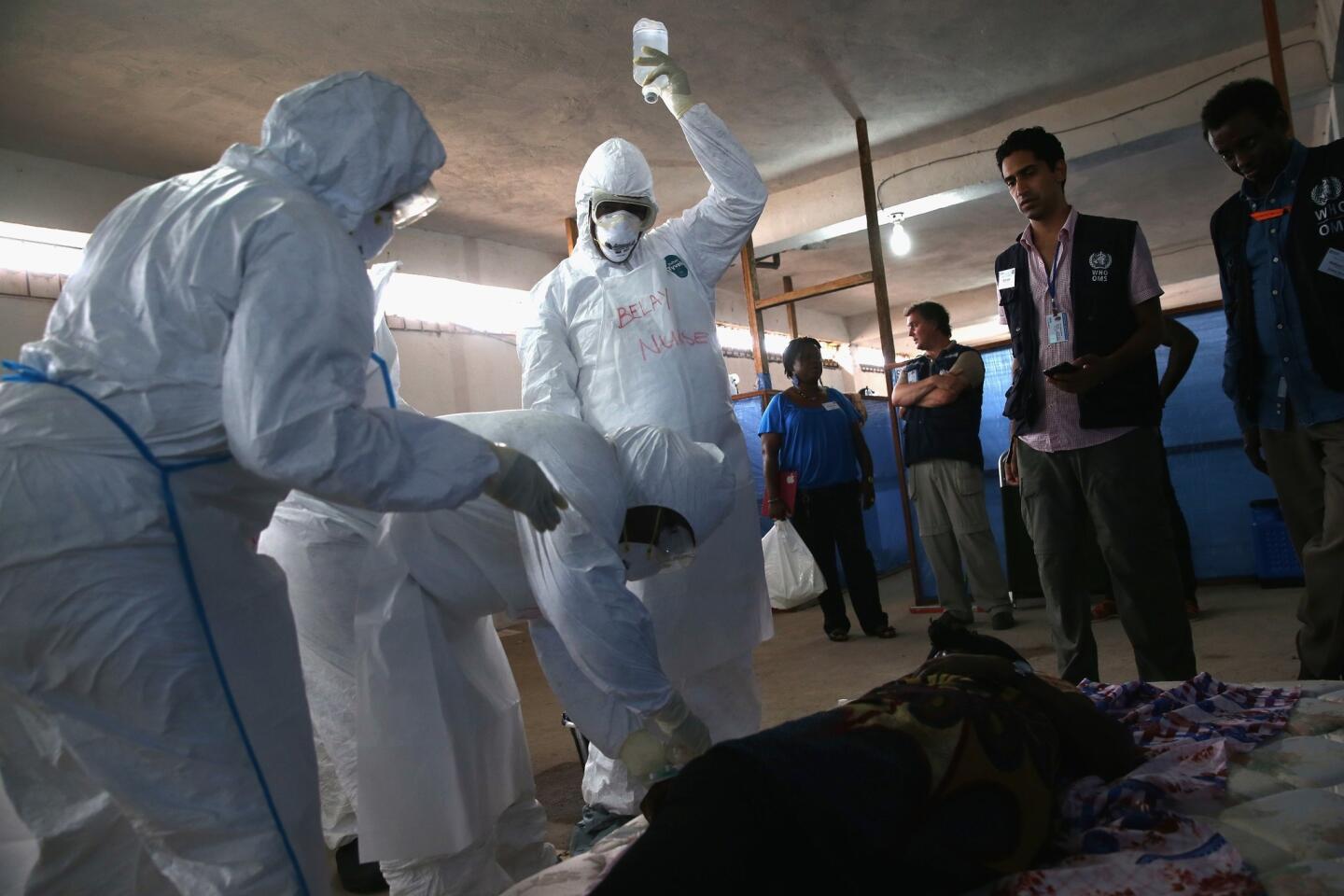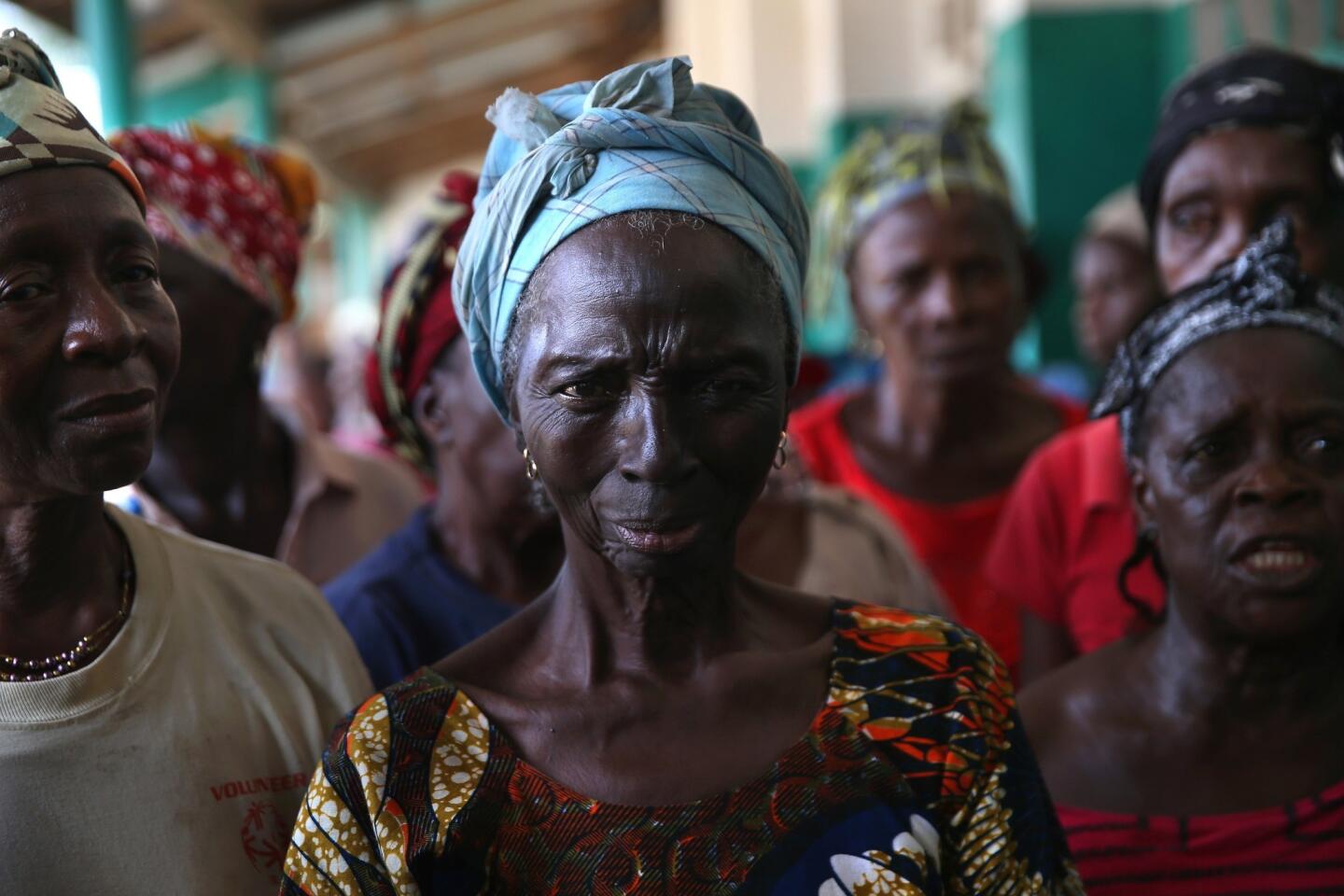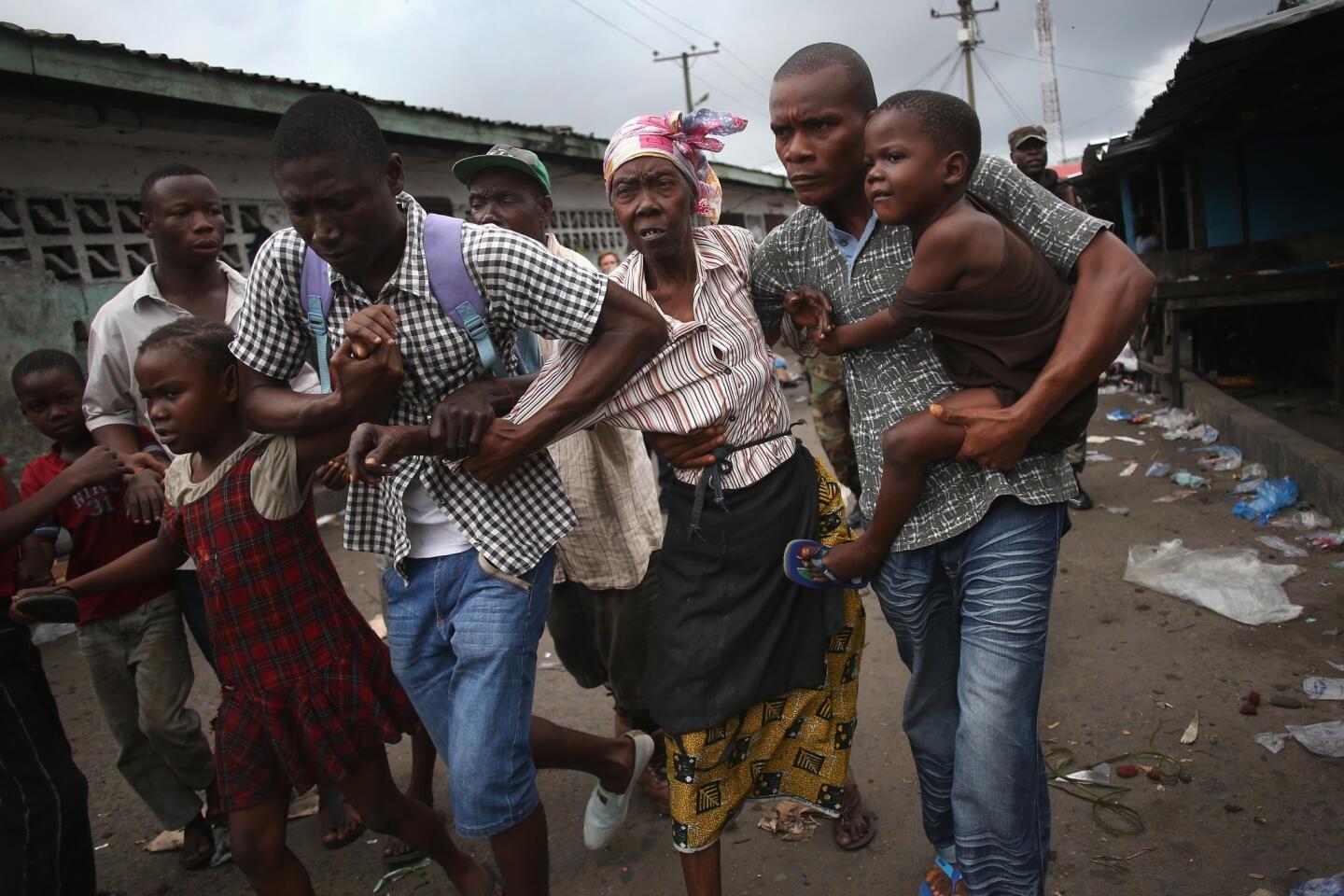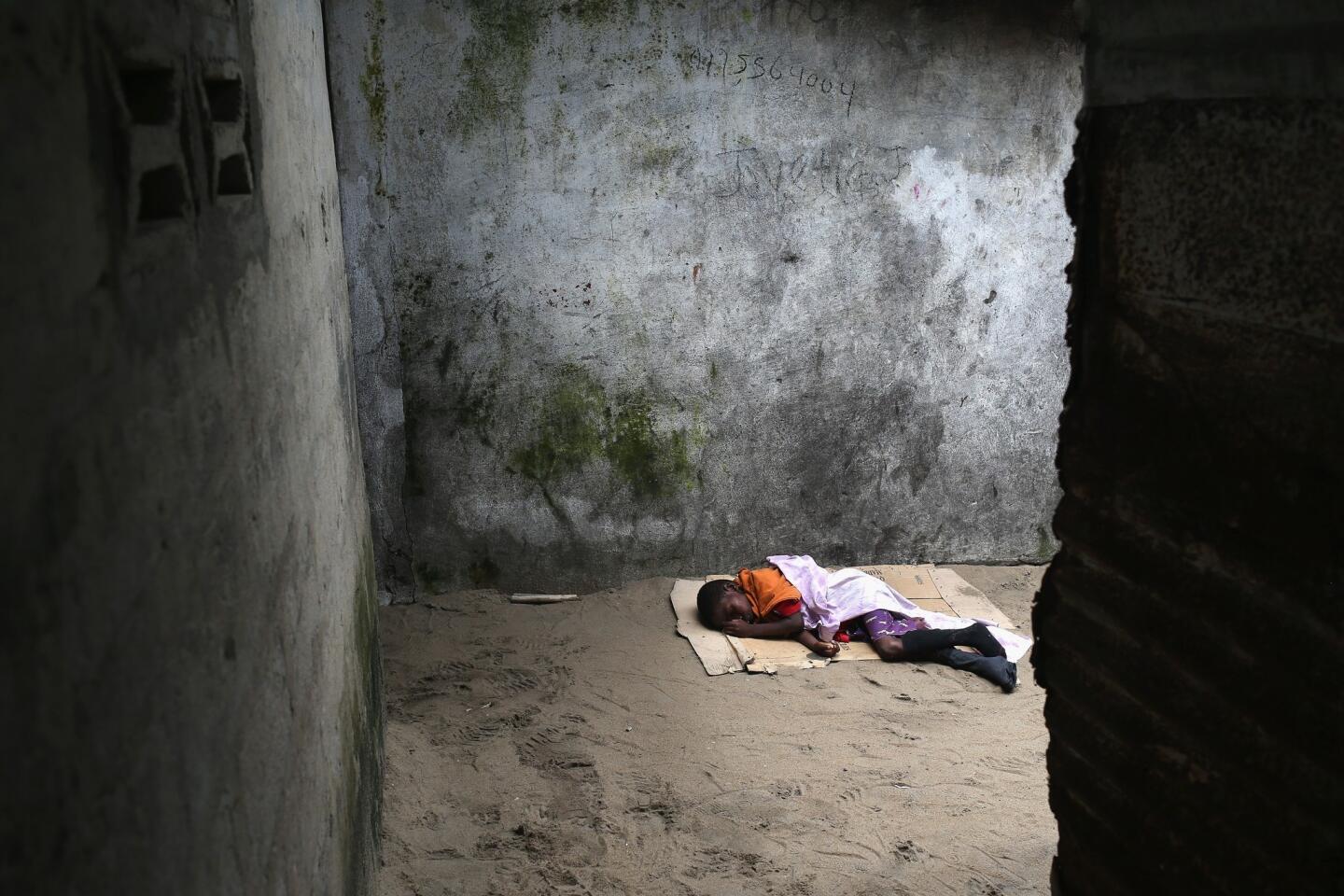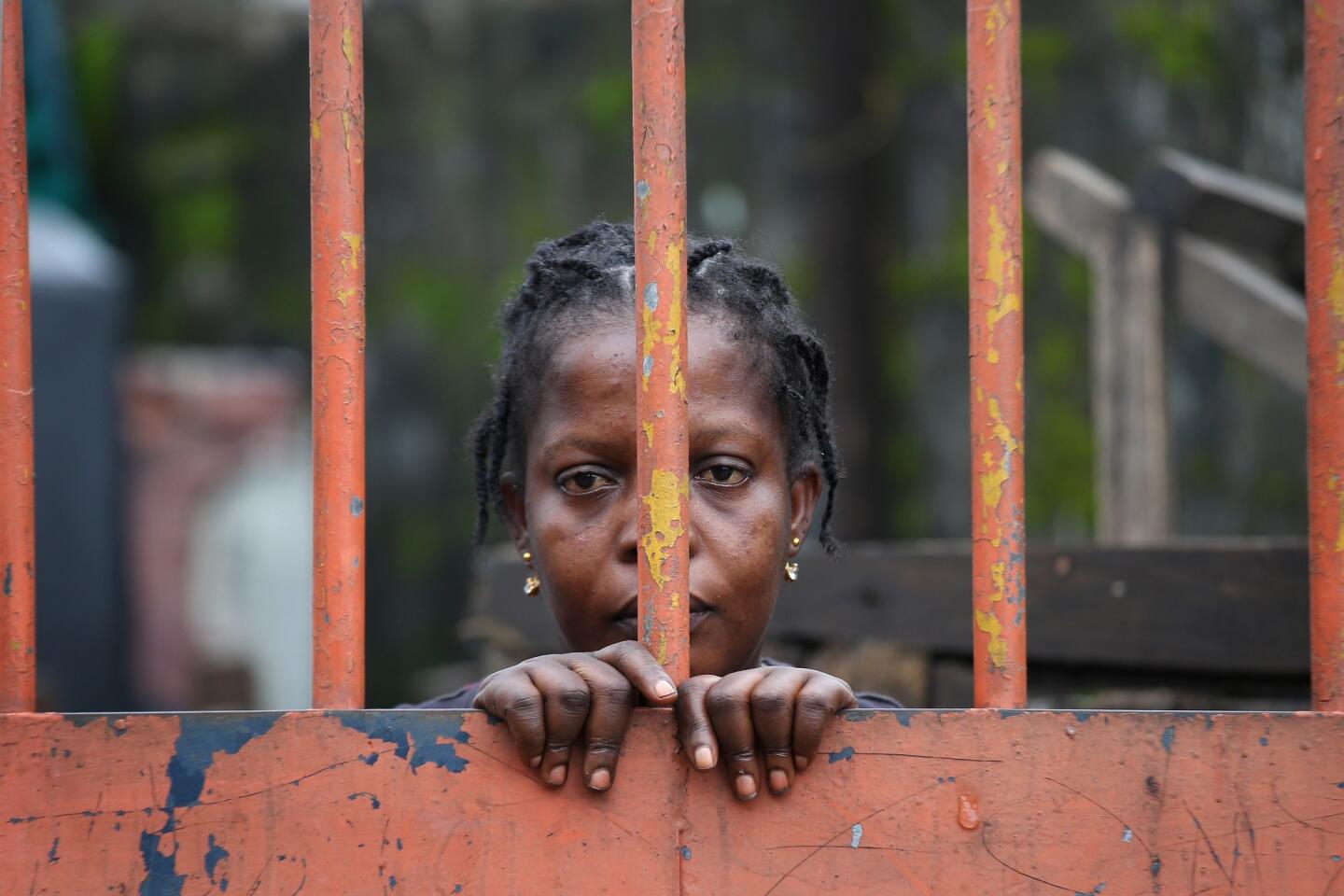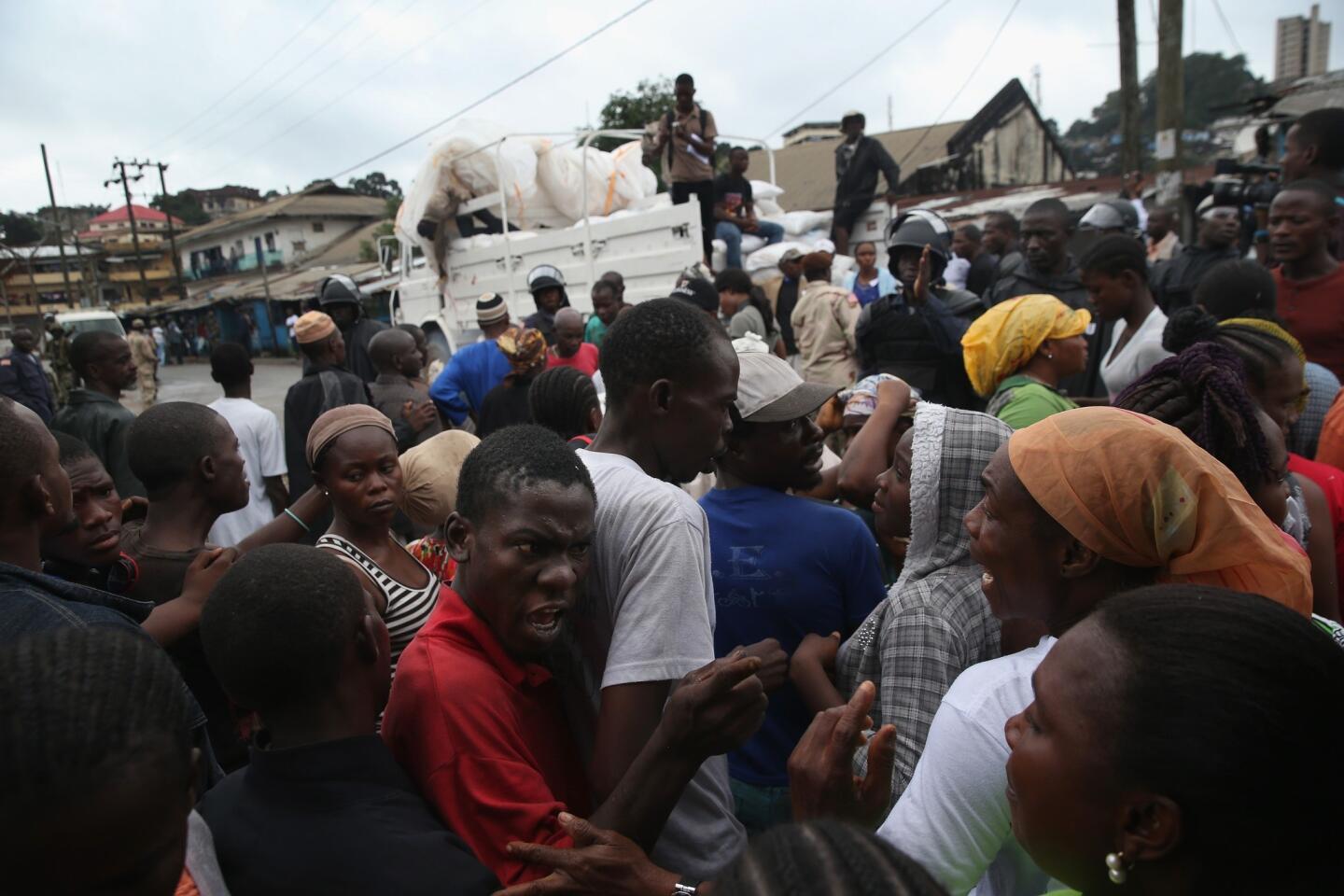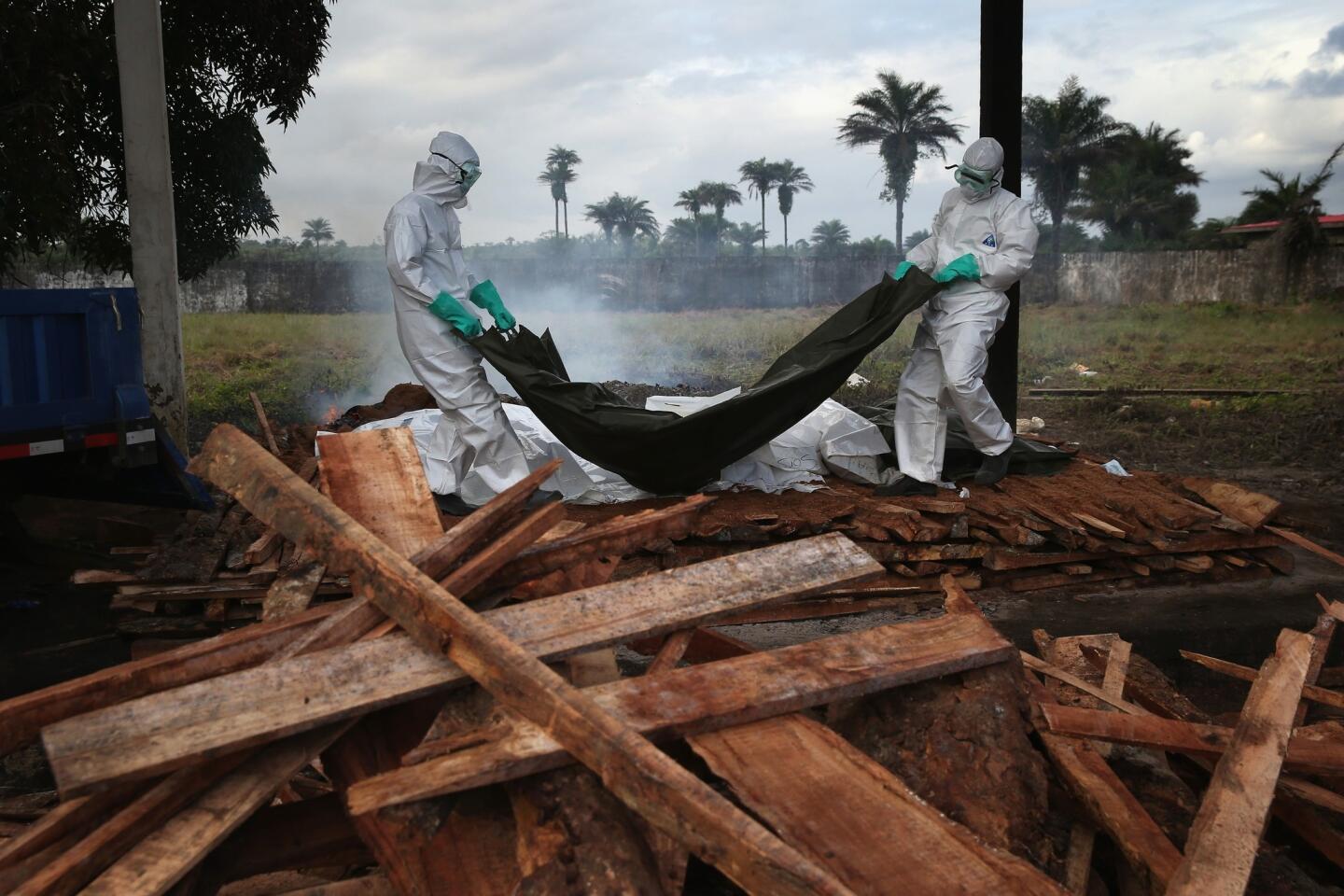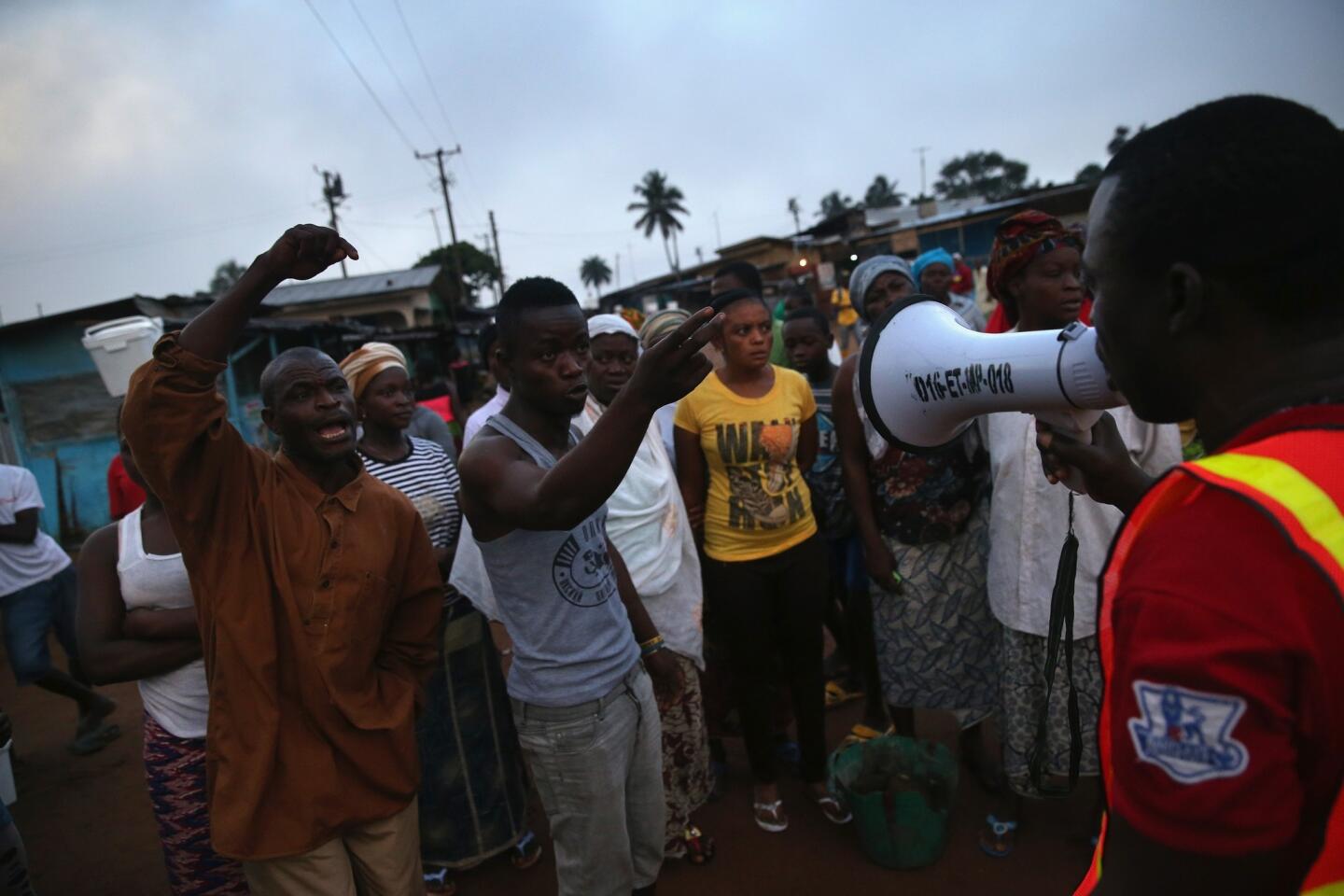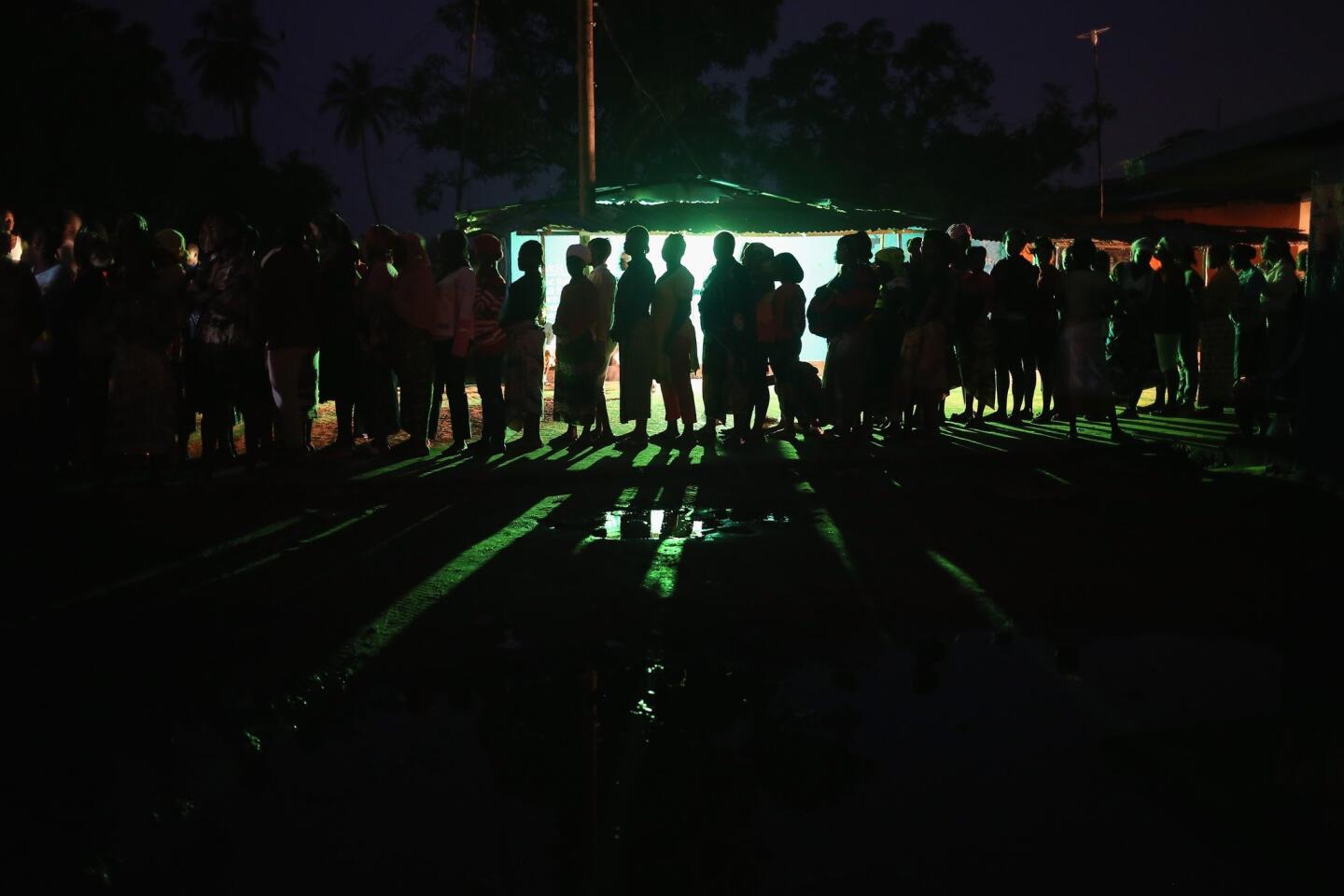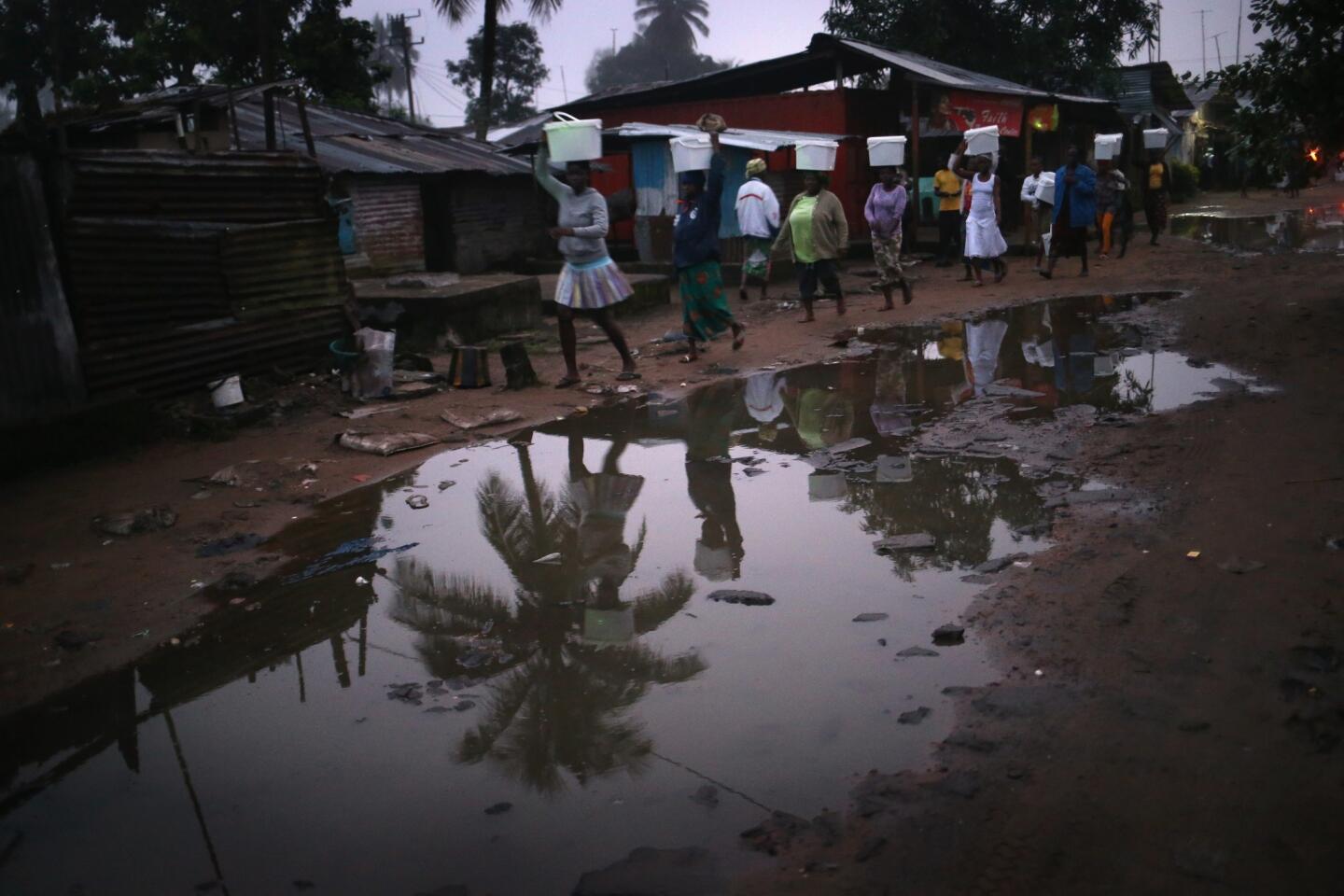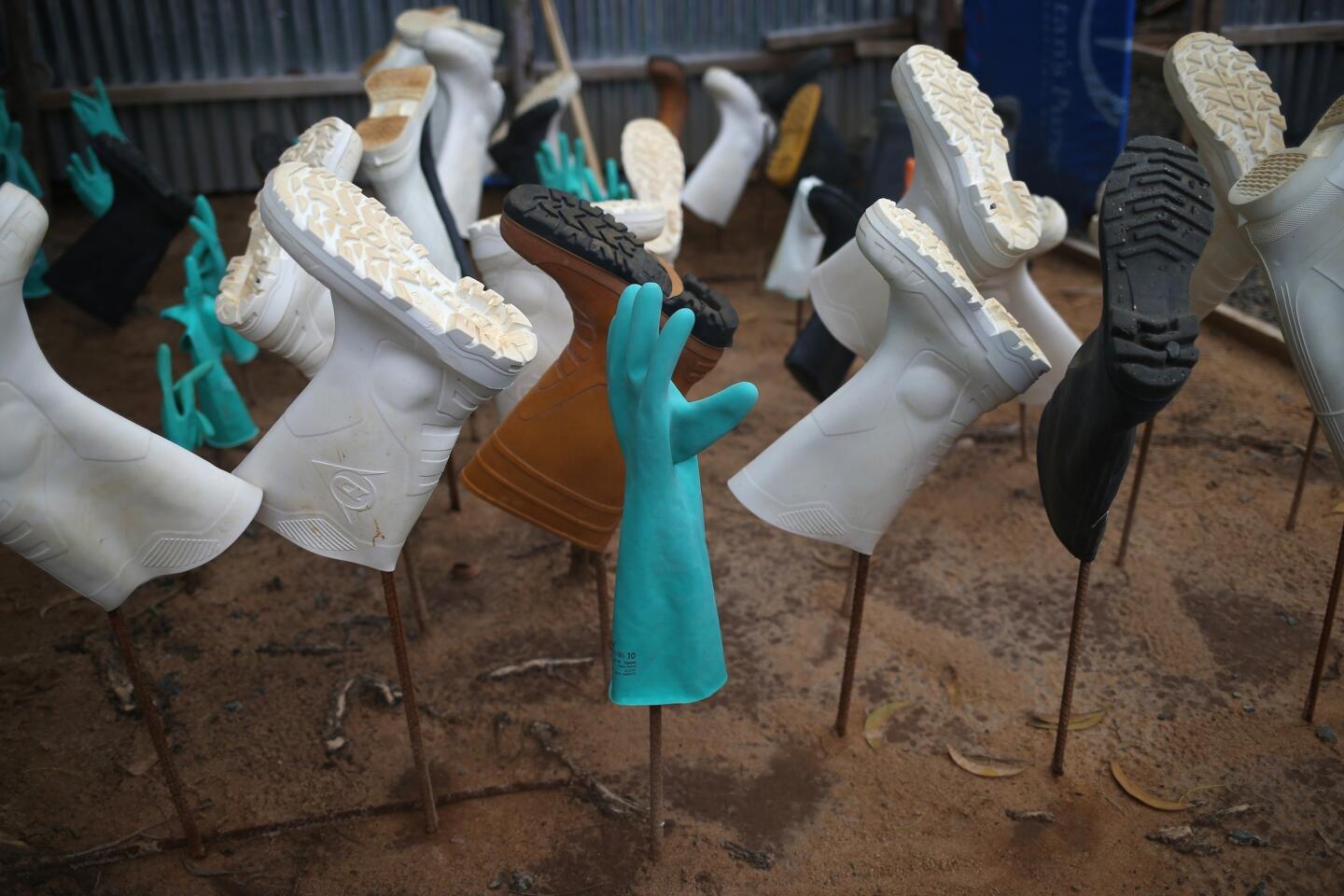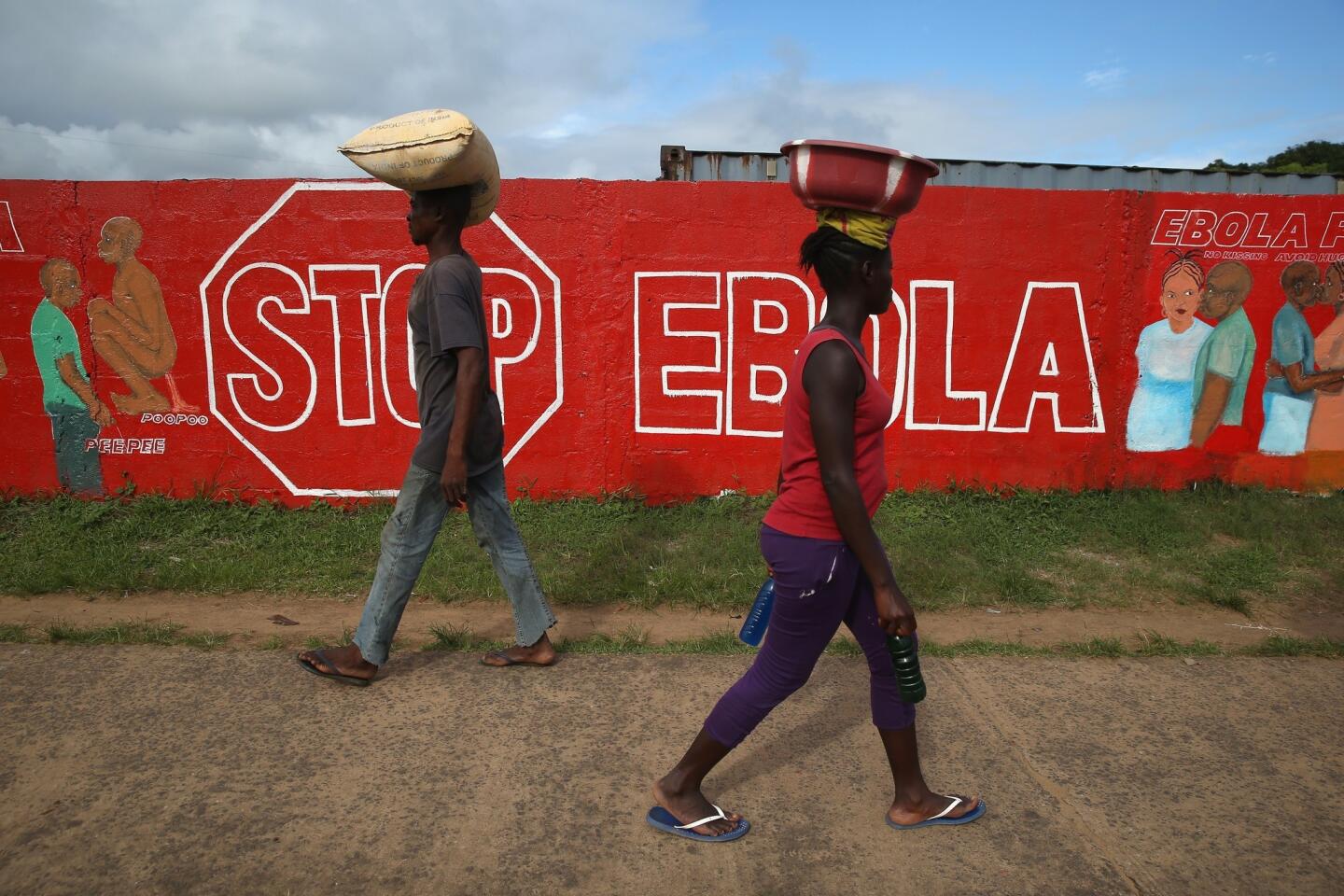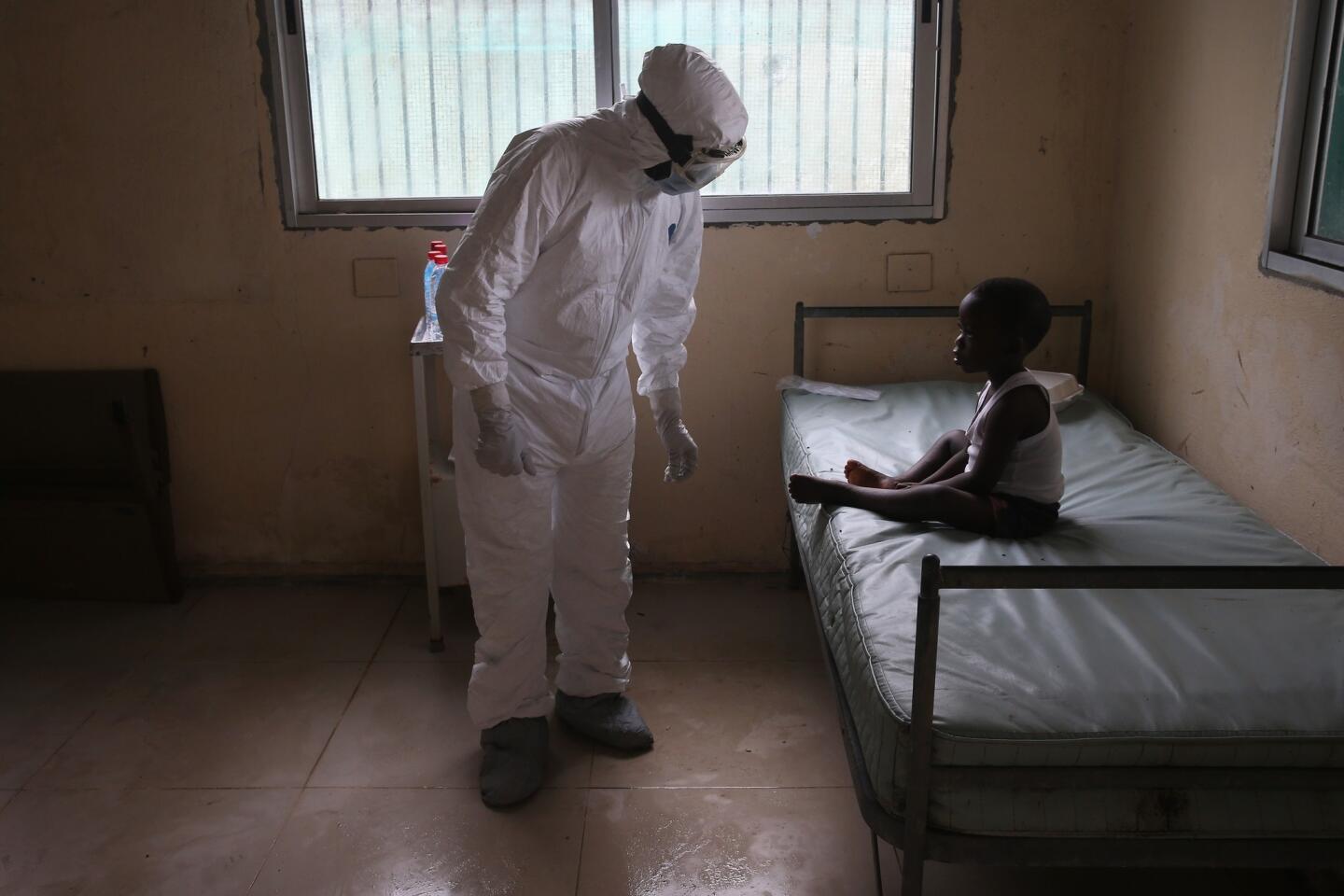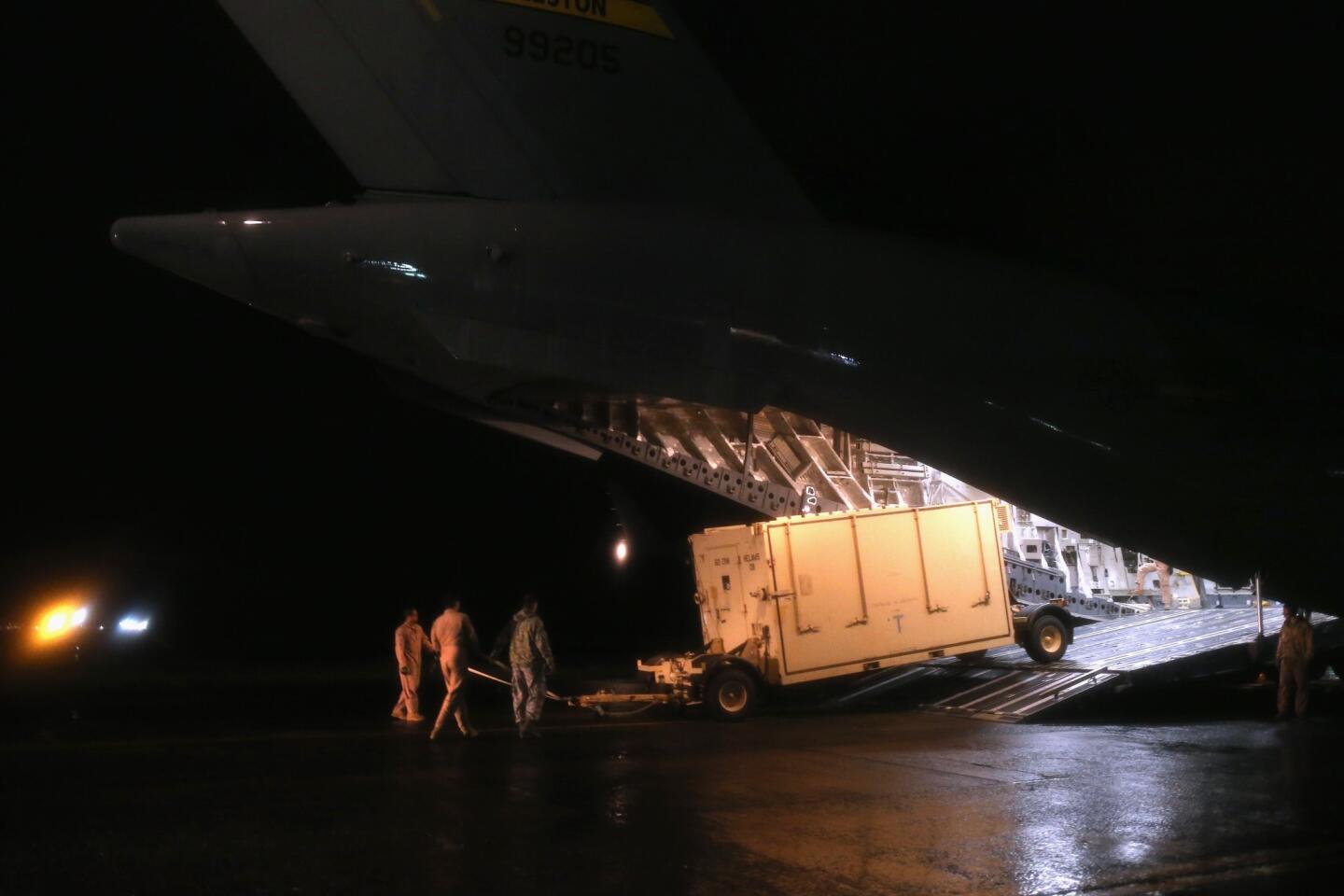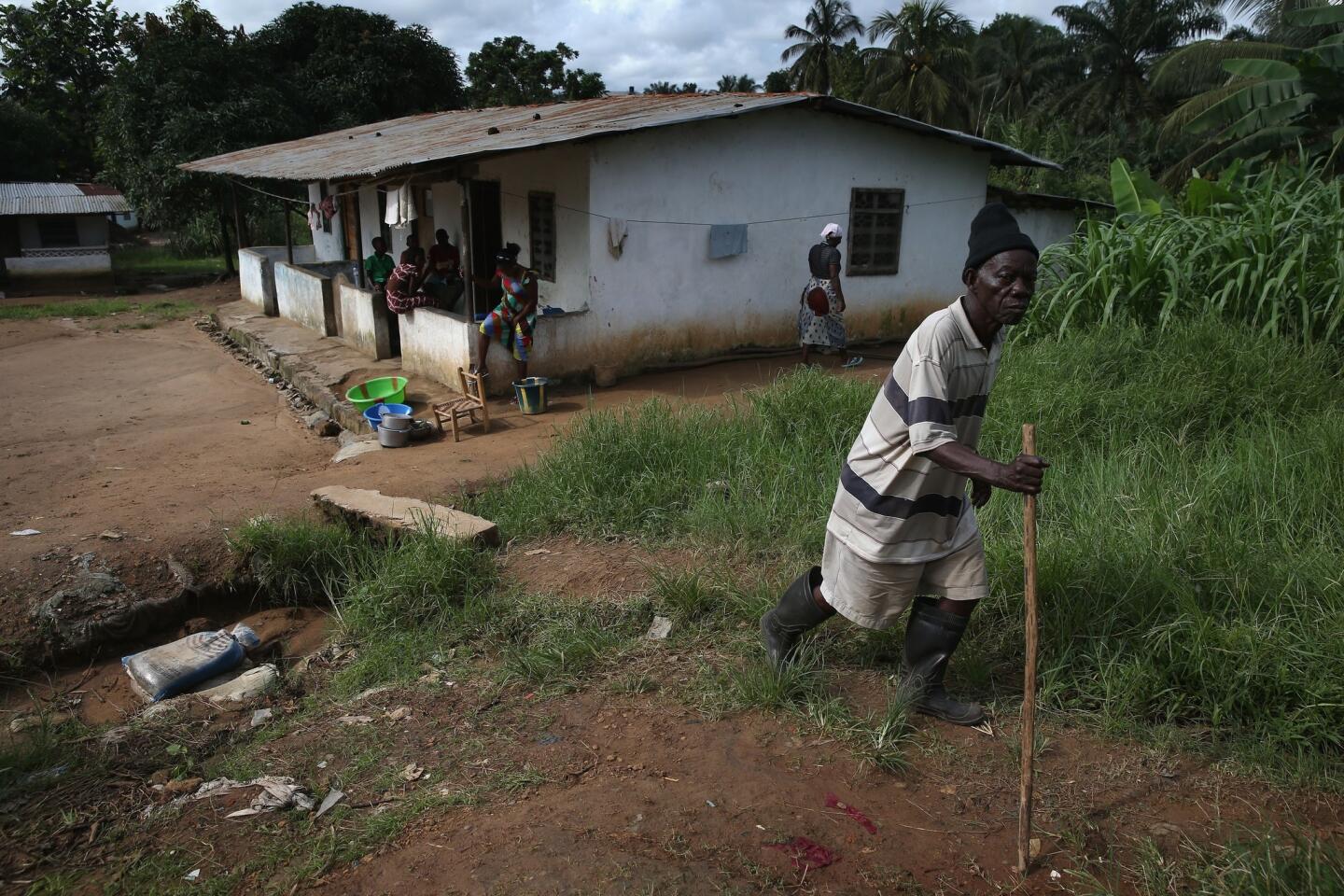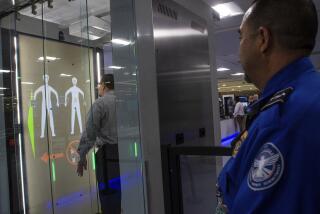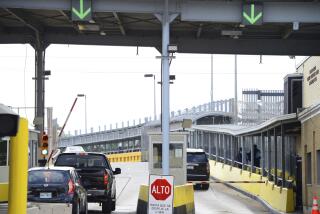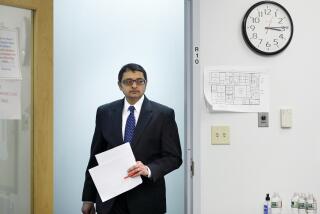CDC considers tougher air passenger screening to combat Ebola
The Centers for Disease Control and Prevention is looking at tougher screening for travelers entering the U.S., including checking for fever and requiring a questionnaire, as a way to combat the spread of infectious diseases such as Ebola, the head of the agency said Tuesday.
CDC Director Thomas Frieden told reporters that details of the added screening would be released in the next few days. President Obama had mentioned changes to passenger screening Monday after he met with top national security officials to discuss Ebola, which has spread through several West African nations. More than 3,400 people have died, according to the World Health Organization.
“Temperature and questionnaires are certainly things we are looking at,” Frieden said at a news conference, which came a week after health officials announced that the first person to be diagnosed with Ebola in the United States was in Dallas. Thomas Eric Duncan was listed in critical but stable condition at Texas Health Presbyterian Hospital, where he was on ventilator, undergoing kidney dialysis and receiving an experimental antiviral drug, brincidofovir.
The added layer of screening probably would not have made a difference in Duncan’s case. His temperature was taken before he left Liberia and it was normal, officials have said; he did not develop symptoms until days after arriving in Texas.
There are also questions about whether Duncan misspoke on Liberia’s exit questionnaire. Duncan said he had not had contact with anyone who had Ebola, but he had helped a sick, pregnant neighbor try to get medical care. The woman died of Ebola, but her family reportedly told people it was malaria. It is unclear whether Duncan knew she had Ebola. African officials have said they are investigating.
Frieden and Texas Health Commissioner David Lakey said there had been “real signs of progress” in monitoring the 10 people who came directly in contact with Duncan, including four people who were in the same apartment as he was. There are 38 other people being monitored who are considered to have a low risk of contracting the virus.
“None are sick, none have symptoms,” Frieden said. “Dallas is doing a terrific job in an unprecedented situation.”
Lakey said that Ebola patients are in maximum danger of developing symptoms in the eight to 10 days after contact, but the risk lasts for as long as 21 days. “This is a very critical week; a lot of monitoring has to take place this week,” he said.
He said his department had had conference calls with the state’s hospitals, which are all on high alert looking for any possible spread, but there has been none so far. “We have one case and we have individuals who are being closely monitored,” Lakey said, adding that no other people with symptoms have been reported.
The Ebola virus continues to spread by contact, Frieden said. It does not spread by airborne exposure.
In Nebraska, the fifth person being treated in the U.S. after contracting Ebola in West Africa also was receiving brincidofovir. Ashoka Mukpo, a freelance journalist working for NBC News, arrived at Nebraska Medical Center in Omaha on Monday after being evacuated from Liberia.
Chimerix Inc. confirmed Monday that it had provided the drug to doctors for “potential use in patients with Ebola.” The Food and Drug Administration had granted the request through the Emergency Investigational New Drug application process, company officials said.
They did not disclose how many doses had been provided or how many patients could potentially be treated with the drug, but Chimerix spokesman Joseph Schepers told the Los Angeles Times that the company had an “adequate” supply.
The medicine, which is administered in tablet form and taken twice weekly, is an antiviral that’s designed to stop the virus from replicating.
The drug has made it to phase 3 testing against two other viruses – adenovirus and cytomegalovirus – according to Chimerix, but has shown some promise in fighting Ebola in lab experiments.
The fact that brincidofovir has made it this far in testing means it has passed initial safety tests required by regulators.
Meanwhile, the Pentagon will test individuals for the Ebola virus at as many as seven mobile laboratories in West Africa, Gen. David Rodriguez, the head of U.S. African Command, told reporters Tuesday. Teams of three or four people manning the labs will wear protective suits and be continually tested for the virus, he said. The teams are trained in dealing with the threat of contamination from biological agents, he said.
Three mobile labs are already operating in Liberia, and the Pentagon has received requests for four more, he said.
Times staff writers Christine Mai-Duc in Los Angeles and David S. Cloud in Washington contributed to this report.
Follow @latimesmuskal for national news.
More to Read
Start your day right
Sign up for Essential California for news, features and recommendations from the L.A. Times and beyond in your inbox six days a week.
You may occasionally receive promotional content from the Los Angeles Times.
